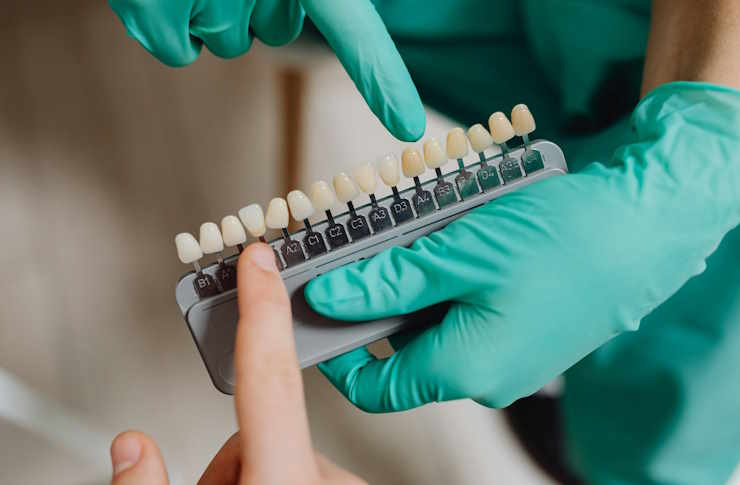Overview of Turkish Dental Implants in the U.S.
Dental implants may serve both functional and cosmetic purposes. Some individuals review Turkish dental implant costs alongside other options. Dentist price lists and nearby clinic consultations can help highlight the range of services available for implant treatments.

Turkey Dentist Price List and Dental Implant Basics
Dental implants consist of titanium posts surgically inserted into the jawbone, serving as artificial tooth roots that support replacement teeth. The complete procedure typically involves three components: the implant (the titanium post), the abutment (connector), and the crown (visible part resembling a natural tooth). Turkish dental clinics have gained popularity by offering these procedures at significantly lower costs than U.S. providers while maintaining international standards in many facilities.
Turkish dental implant prices generally range from $500-$1,000 per implant, compared to $3,000-$5,000 in the United States. This substantial price difference includes the implant, abutment, and crown. Many Turkish clinics also offer package deals for multiple implants, with additional services like airport transfers, accommodation arrangements, and translator services included to accommodate international patients.
Understanding Dentist Dental Implants in the US
In the United States, dental implant procedures follow strict protocols regulated by organizations such as the American Dental Association and the Food and Drug Administration. Dentists performing implant surgery typically complete additional specialized training beyond dental school, often including residencies in oral surgery or periodontics.
The American dental implant process generally involves comprehensive pre-operative assessments, including 3D imaging, bone density evaluations, and thorough health screenings. Treatment planning tends to be conservative, with bone grafting recommended when necessary to ensure optimal implant integration and longevity. Post-operative care includes regular follow-up appointments and adjustments as needed, with providers remaining accessible for complications or concerns that may arise years after the initial procedure.
Dentist Clinic Nearby and What to Consider for Treatment
When considering dental implant treatment at local clinics, several factors warrant careful attention. Proximity plays an important role, as dental implant procedures require multiple visits over several months. A conveniently located clinic reduces travel burden during the treatment and follow-up period.
Evaluating a potential provider involves examining their specific implant experience, success rates, and continuing education credentials. Request before-and-after photos of similar cases and ask about their preferred implant systems and why they choose them. Additionally, confirm whether the dentist performs the entire procedure in-office or collaborates with specialists for certain stages.
Insurance coverage varies significantly for implant procedures in the U.S., with many plans covering only portions of the treatment. Patients should investigate financing options, payment plans, and possible health savings account utilization when planning for implant treatment locally.
Comparing Local Dentist Services with Turkish Dental Implants
When evaluating dental implant options between U.S. and Turkish providers, several key differences emerge beyond just pricing. Quality perceptions often raise concerns, though many Turkish dental clinics popular with international patients use implant systems from the same manufacturers as U.S. dentists (such as Nobel Biocare, Straumann, and others). However, regulatory standards and oversight differ between countries, potentially affecting consistency and safety protocols.
The treatment timeline presents another significant difference. Turkish dental tourism packages typically compress treatment that might take 3-6 months in the U.S. into 1-2 weeks, which raises questions about healing protocols. While this acceleration appeals to many patients, it may introduce additional risks or compromise optimal outcomes in complex cases.
Warranty and follow-up care represent crucial considerations. Most reputable Turkish clinics offer warranties on their work, but obtaining follow-up care requires either returning to Turkey or finding a local dentist willing to treat potential complications with another provider’s work—something many U.S. dentists hesitate to do without charging additional fees.
Cost Comparison of Dental Implant Options
The following table provides a general comparison of dental implant costs and features between typical U.S. and Turkish dental providers:
| Service | U.S. Provider | Turkish Provider | Key Considerations |
|---|---|---|---|
| Single Dental Implant | $3,000-$5,000 | $500-$1,000 | U.S. includes multiple visits; Turkey often requires travel costs |
| Full-Arch Implants (All-on-4) | $20,000-$30,000 per arch | $6,000-$10,000 per arch | Higher immediate cost in U.S. but local follow-up care included |
| Bone Grafting (if needed) | $600-$2,500 | $200-$700 | More commonly recommended in U.S. practices |
| Crown Material Options | Standard to premium ($500-$3,000 difference) | Standard to premium ($200-$800 difference) | Material longevity and aesthetics vary |
| Anesthesia Options | Local to IV sedation (additional $400-$800) | Primarily local (sedation may be $100-$300 extra) | Different standards for monitoring during sedation |
Prices, rates, or cost estimates mentioned in this article are based on the latest available information but may change over time. Independent research is advised before making financial decisions.
Conclusion
Turkish dental implants represent a significant cost-saving alternative for Americans seeking affordable tooth replacement options. While price advantages are substantial, patients must carefully weigh factors including travel requirements, compressed treatment timelines, and potential challenges with follow-up care. Both U.S. and Turkish options can provide successful outcomes when patients research thoroughly, choose reputable providers, and understand the complete scope of treatment involved. The decision ultimately depends on individual priorities regarding cost, convenience, treatment timeline, and long-term maintenance considerations.
This article is for informational purposes only and should not be considered medical advice. Please consult a qualified healthcare professional for personalized guidance and treatment.




